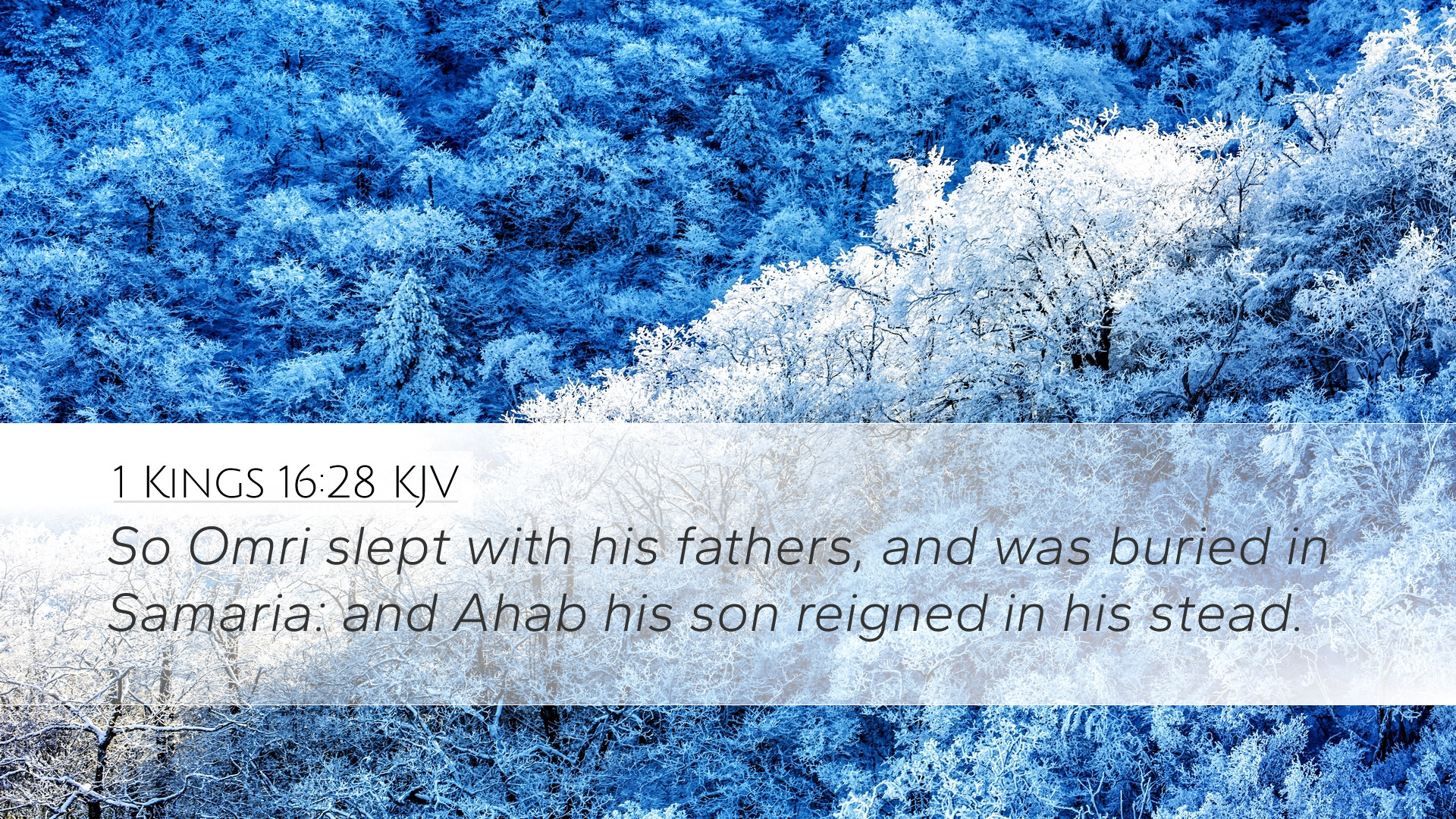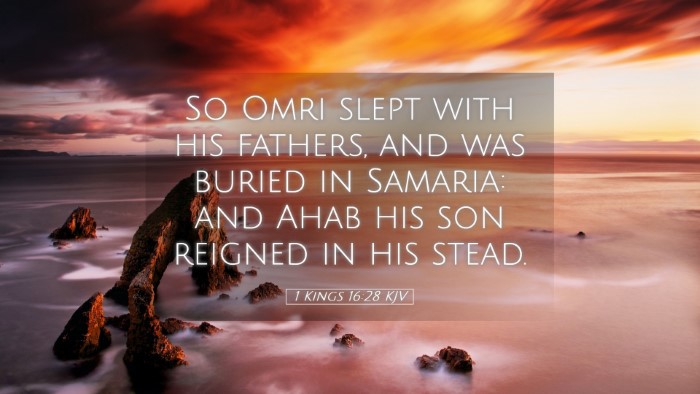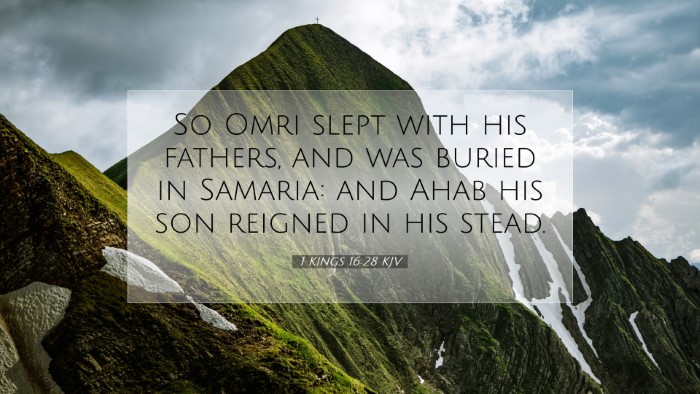Commentary on 1 Kings 16:28
1 Kings 16:28 states: "So Omri slept with his fathers, and was buried in Samaria: and Ahab his son reigned in his stead." This passage marks a transition in leadership in the northern kingdom of Israel and sets the stage for the reign of Ahab, a pivotal figure in the narrative of Israel’s history.
Historical Context
The scripture comes from a historical account describing the kings of Israel. Omri was a king notable for establishing the city of Samaria as the capital of Israel. His reign is significant, not only for political achievements but also for initiating practices that would lead Israel further away from Yahweh.
Commentary Insights
-
Matthew Henry’s Commentary:
Henry emphasizes the importance of Omri's legacy and the warning it holds for future generations. He notes that Omri’s rise was marked by intrigue and bloodshed, which sets a dark tone for Ahab’s subsequent reign.
-
Albert Barnes’ Notes:
Barnes highlights Omri's military prowess and political strategy, as he secured his rule through conflict and demonstrated the complexities of leadership in a divided kingdom. He notes how Omri’s achievements contrast sharply with the spiritual decline of the nation.
-
Adam Clarke’s Commentary:
Clarke provides a perspective on Omri’s influence in establishing national and religious practices that would be detrimental in the eyes of God. He points out the irony that despite Omri's strength, the moral decline leads to Ahab’s even more notorious sins.
The Significance of Death and Burial
The passage speaks to the inevitability of death and succession in leadership. Omri's death and burial in Samaria signify not only the end of his reign but also the transitory nature of earthly power. This serves as a reminder that all leaders, no matter their strength or achievements, will ultimately return to the dust from which they came.
The Transition to Ahab
This verse serves as a precursor to Ahab’s reign, setting a significant tone as he takes the throne. Ahab becomes known for his relationship with Jezebel and the introduction of Baal worship, which leads Israel into deeper sin. Omri’s legacy of compromise with surrounding pagan nations deeply impacts Ahab’s decisions.
Lessons for Today
As we reflect upon 1 Kings 16:28, several lessons arise:
- Leadership and Legacy: Leaders must consider how their actions will shape the future. Omri's initial military success lays a foundation for Ahab’s moral failures.
- The Importance of Spiritual Integrity: Even in political successes, without adherence to God's commandments, a nation can falter, highlighting the link between spiritual health and national well-being.
- The Sobering Reality of Mortality: The passage serves as a reminder of the transient nature of life and power, urging leaders to live with an awareness of their accountability before God.
- Covenantal Faithfulness: Israel’s struggle with idolatry reiterates the need for persistent faithfulness to God’s covenant, a theme that resonates throughout the biblical narrative.
Conclusion
In reviewing 1 Kings 16:28, one must recognize the weight of history and leadership in shaping a nation’s spiritual trajectory. Omri and Ahab’s reigns serve both as cautionary tales and as examples for contemporary leaders who seek to navigate the complexities of power, faith, and moral responsibility.
This reflection encourages pastors, scholars, and students alike to delve deeper into the narratives of Scripture, extracting wisdom that is both timeless and applicable to today's challenges in leadership and spiritual integrity.


